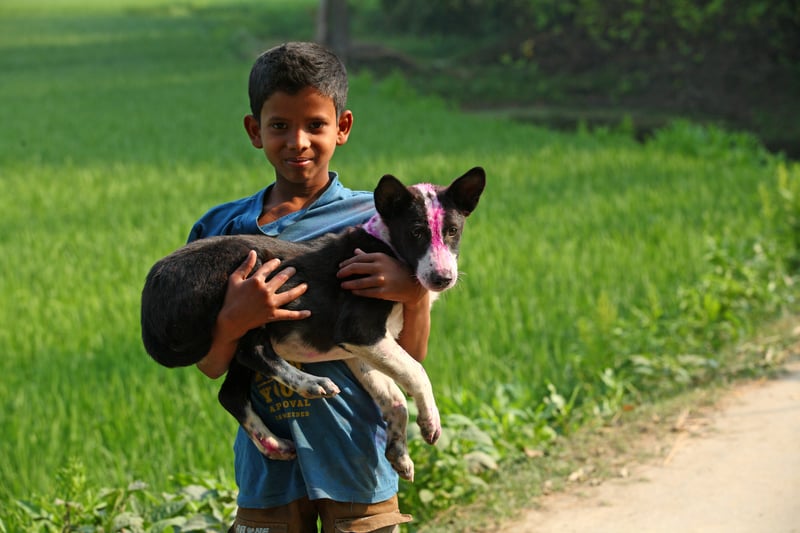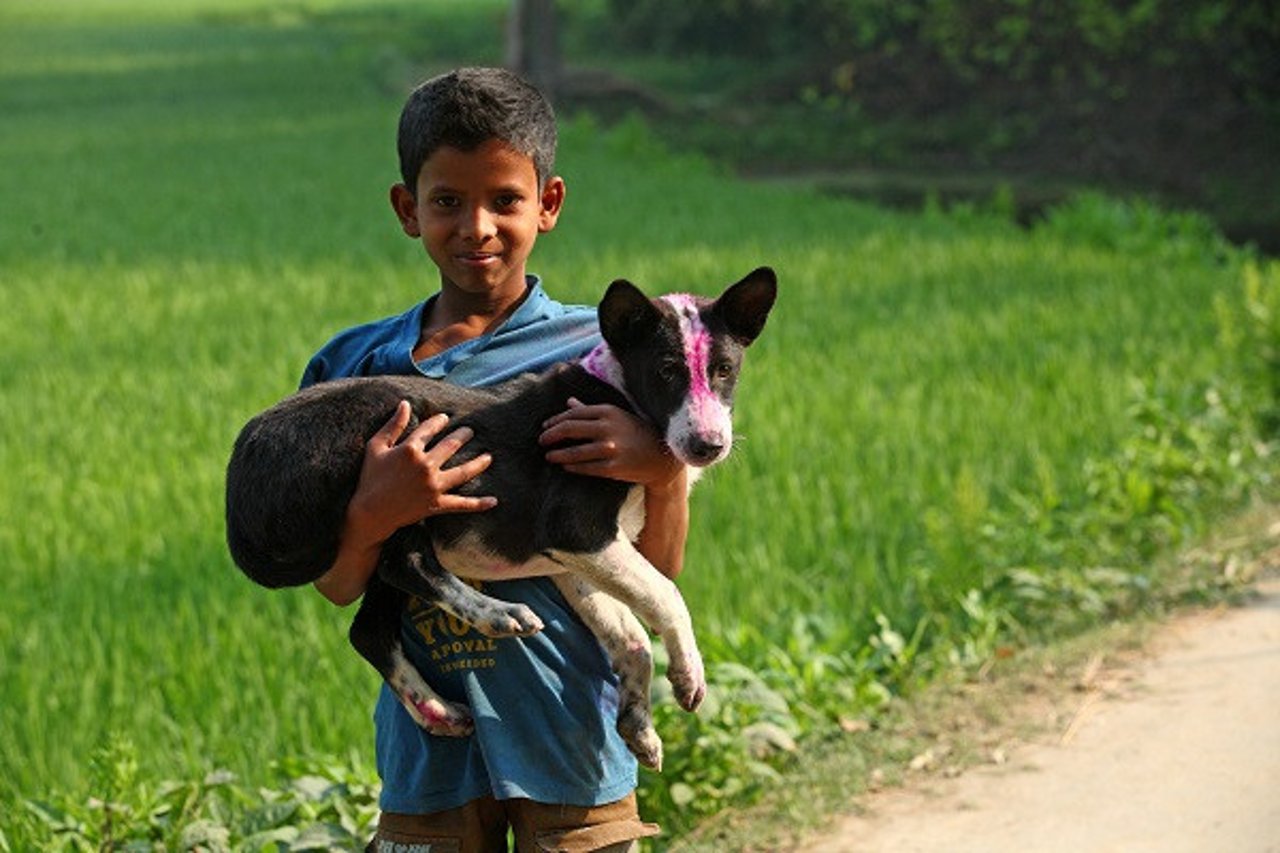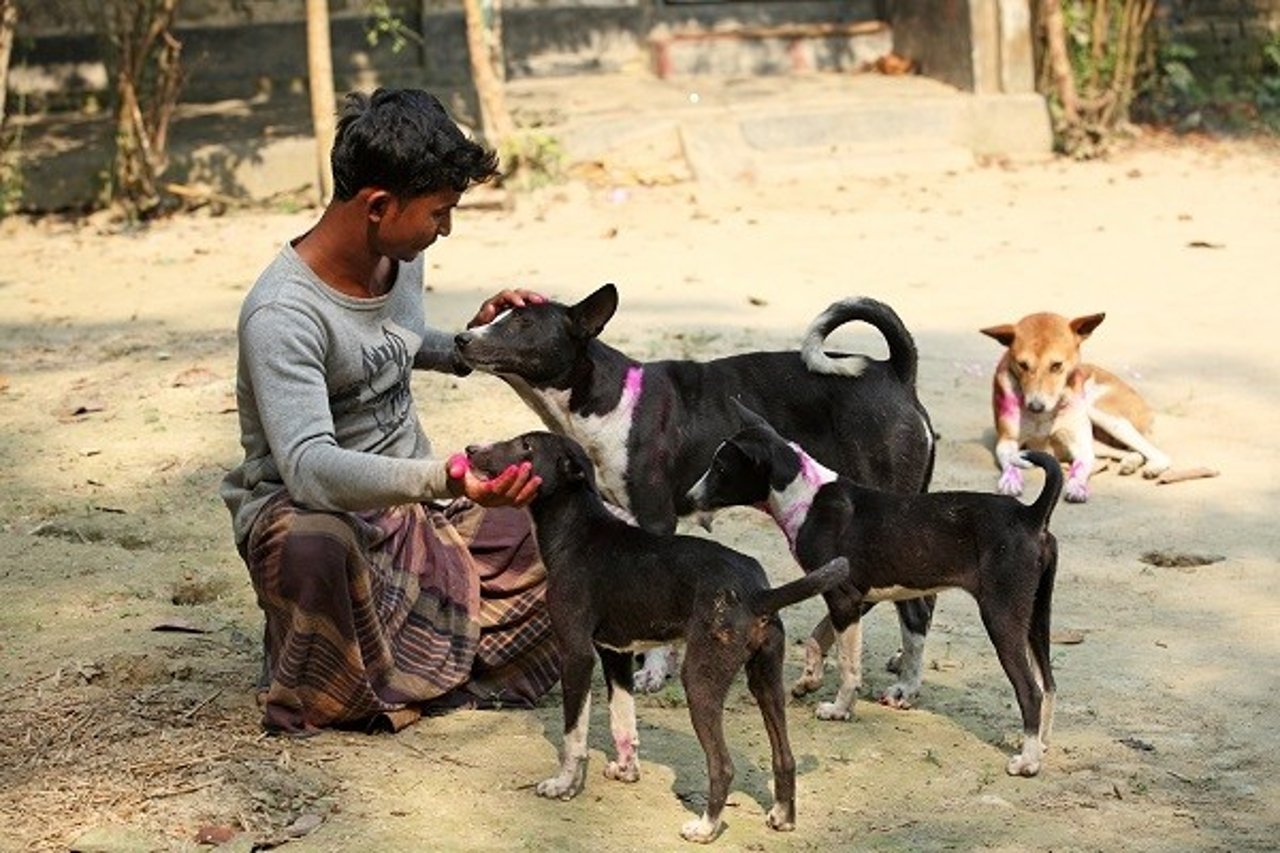
Ending inhumane culling: stories from Bangladesh
News
To stop the culling of dogs, we started working with the Government of Bangladesh in 2011 to help them implement the only human and sustainable way to prevent the spread of rabies: the mass dog vaccination of dogs.
Culling dogs because of the fear of rabies used to be common in Bangladesh. They were brutally caught using strong iron tongs and then injected with poison directly into their heart. Sadly death wasn’t instantaneous, it took hours for poisoned dogs to die while suffering an unimaginable amount of pain.
To stop the culling of dogs, World Animal Protection started working with the Government of Bangladesh in 2011 to help them implement the only human and sustainable way to prevent the spread of rabies: the mass vaccination of dogs. So far over 97,000 dogs have been vaccinated and the Government has plans to vaccinate many more.
Our team visited a rural district in Bangladesh last week where thousands of dogs were being vaccinated and met with dog owners to find out their stories:
Mohamad Bipul and Raja
Eleven-year old, Mohamad Bipul lives with his large family – 4 brothers and 3 sisters - in a quiet rural village of Bangladesh, surrounded by paddy fields. He grew up around animals as most people keep free ranging cattle, goats, chicken and also dogs. Only a few people keep their dogs close, most of them are free roaming and looked after by the whole community. The dogs are used to guard the houses and fields, but the villagers are very affectionate and treat them as pets.
Rabies isn’t widespread in the area but the community is very wary of it because they have had cases of rabies in the past and they know how dangerous being bitten can be. Previously they have had no choice but to kill suspected rabid dogs.
When we approach Mohamad Bipul, he proudly shows us Raja, his 4-month old black and white puppy. He said he wants Raja to be safe, his older brother told him that when a dog is vaccinated against rabies, it keeps him healthy. The little boy helps the team catch Raja so he can be vaccinated and marked with non-toxic paint for everyone in the village to see that Raja isn’t a threat and safe to be handled. Raja is a very healthy and happy puppy and he cannot wait to be released to go play with his young owner.
Mohamad Bipul tells us that Raja protects his family’s house and that everyone at home loves Raja and pets him. They look after the dog really well and feed him rice, lentils and biscuits. Even if allowed in the house, Raja prefers to stay with the cows in the barn at night. Although Raja is still a puppy, he already shows signs of being a good guard dog by barking when strangers come to his owner`s home.
Keeping dogs safe, a family tradition
Twenty two-year old Kaosar Mondol lives in a quiet rural village in Bangladesh, with his extended family, including his elder uncle, 66-year old Rafiqul Islam. All of them are farmers and also keep cattle, goats, chicken as well as dogs for protection.
He shows us his dogs, Jemmy – a brown male dog, Mama - a black female with white patches and their two puppies that haven’t been named yet. All four dogs have shiny coats, a sign of good health. They are very friendly when the vaccination team approaches them. They keep playing together and seem unconcerned by the vaccinations happening around them. Once vaccinated, they are all marked with non-toxic paint so that the whole community knows they are safe to approach.
Kaosar’s family has a long history of keeping dogs, each generation passed on its experience to the next. It is quite unusual for people to keep dogs as guards and also pets as most of them are just free-roaming and looked after by the community.
Both Kaosar and his uncle know about rabies and how dangerous an infected dog can be. They’ve heard about dog vaccinations in the city and were glad the program extended to the countryside so their dogs could benefit from it as well. Kaosar thinks it is very important for his dogs to be vaccinated and tells us: “By vaccinating dogs against rabies, they can live with humans as friends.”
Learn more about our work helping animals in communities.
Both Kaosar and his uncle know about rabies and how dangerous an infected dog can be. They’ve heard about dog vaccinations in the city and were glad the program extended to the countryside so their dogs could benefit from it as well.

